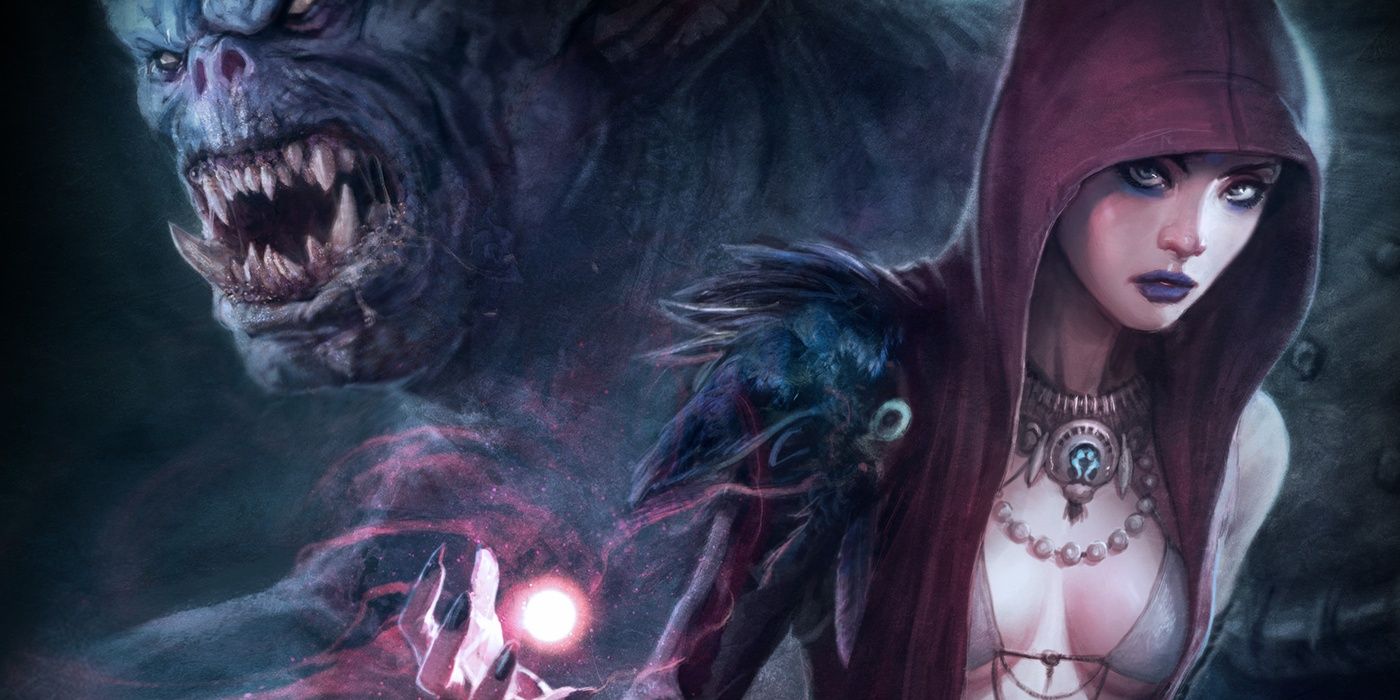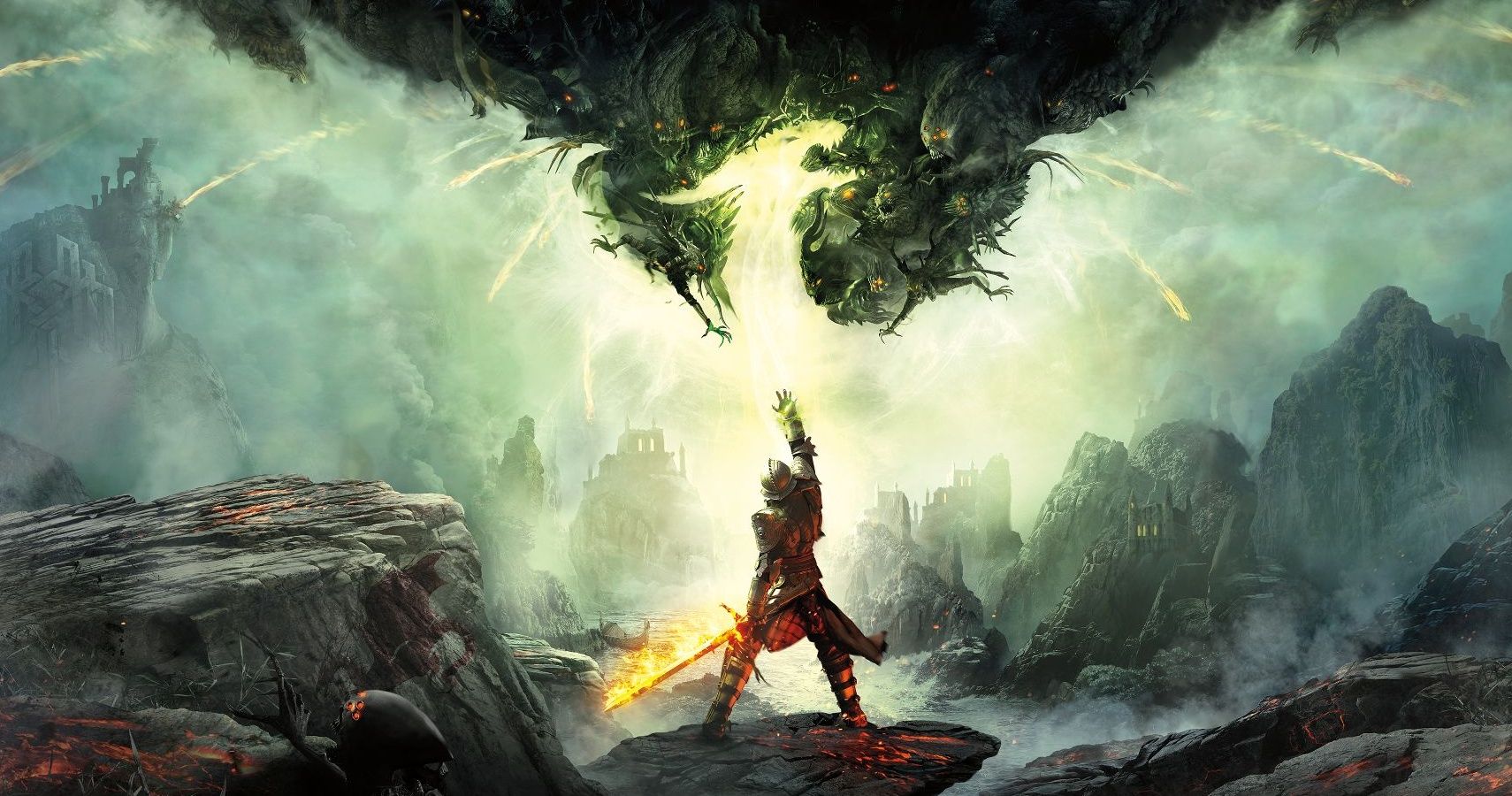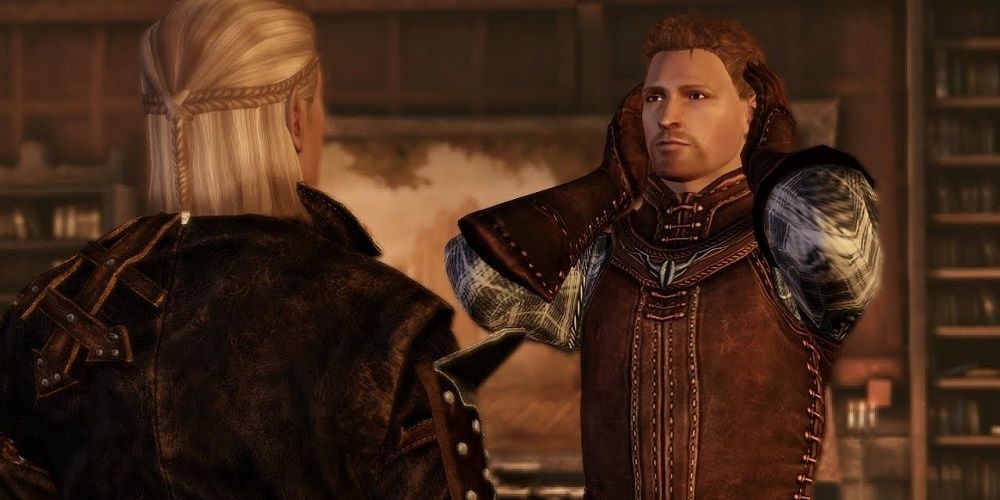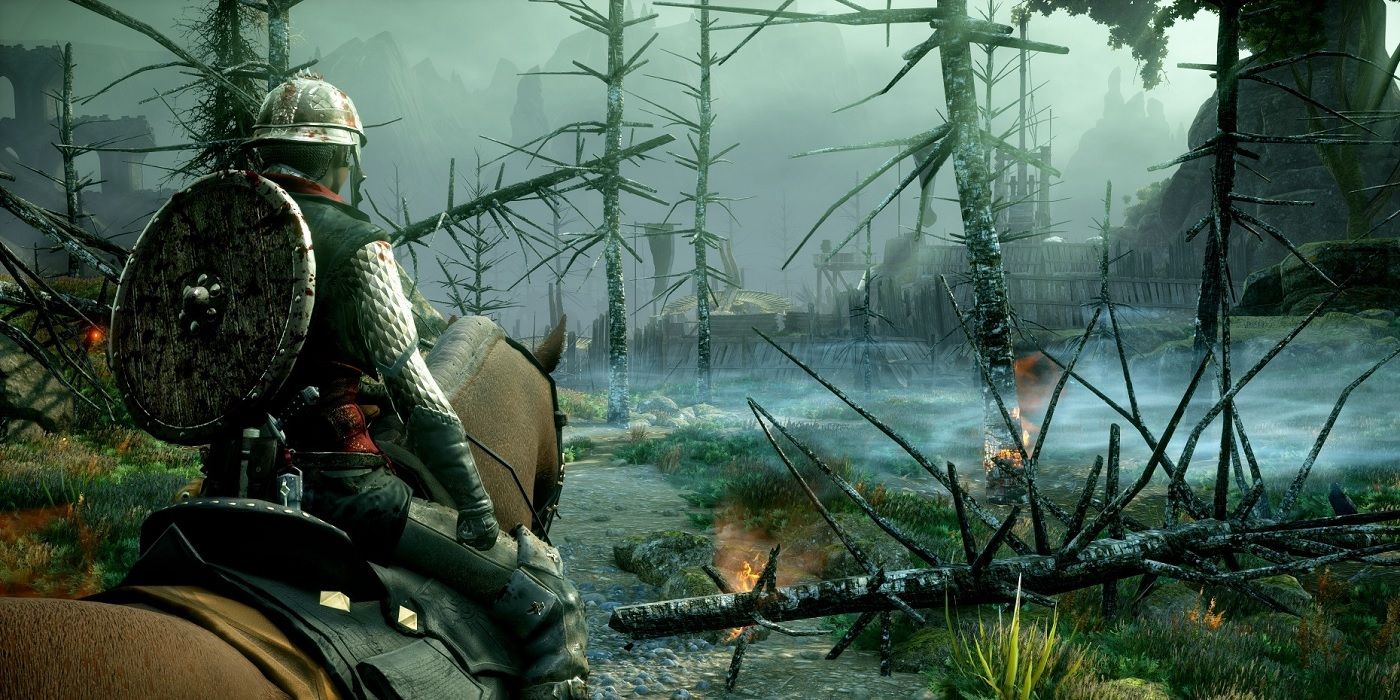Dragon Age: Origins was one of the most highly acclaimed video game RPGs ever made when it released in 2009, winning Game of the Year and cementing BioWare's stellar reputation. Over the course of the series, graphics have improved, combat has become more dynamic, and the world players can explore has grown, all trends many players expect to see continue in Dragon Age 4.
If Dragon Age 4 is going to return the series to the acclaim of the first game, however, it won't only need to resolve some of the biggest mysteries in Dragon Age, but will need to learn one big lesson from the way Dragon Age: Origins told its story. It was designed to encourage a level of player immersion and self-motivation which helped overcome the game’s cluttered combat and graphics to tell one of the most compelling fantasy stories in video games.
The Chosen One Problem
Stories have used the trope of the Chosen One for thousands of years – a central character chosen by fate to drive the action of the story and conquer a quest only they can complete due to something inherent in their being. Though it goes as far back as Arthurian legend (and likely further), it’s a common storytelling tool used in video game RPGs to compel the player to complete the main story, such as in Skyrim, where the player discovers they are the Dragonborn, and therefore the only person able to kill dragons permanently in a world where they are returning.
The downside is that the protagonist’s motivation can feel thrust upon them, rather than the player character sharing the same motive as the player, allowing that player to fully immerse themselves in the story. Dragon Age: Origins’ story avoided the Chosen One problem by flipping the archetypal narrative on its head. In the beginning of Dragon Age, no matter which origin a player chooses, the opening origin quests explain how this character comes to face arrest, execution, or exile, and it is only by luck that Duncan, a visiting Grey Warden, is able to help them avoid their penalty by conscripting them to the Wardens.
The next chapter of the game has the player collecting materials for their initiation ceremony in the Korcari Wilds when they meet the wild witch Morrigan and her mother Flemeth. When the Battle of Ostagar goes awry and most of the Grey Wardens are killed, not only is the player only spared because they are sent on a side mission away from the battle due to their low rank, but Flemeth only rescues them in the aftermath because she knows the Warden from their chance encounter during the initiation quests.
There’s some argument to be made that by surviving the initiation ritual and drinking the Darkspawn blood, the player is "chosen" in some sense, but only to the extent that all of the other Grey Wardens they meet in the game are as well, including the only other known survivor of the battle, Alistair.
By pairing the player with Alistair, the game specifically draws focus away from the player character as inherently special in any way. The player isn’t chosen by anyone to defeat the Darkspawn, they’re just coincidentally one of two remaining people who can do so, as only a Grey Warden can kill Dragon Age: Origins' final boss, the Archdemon, due to the blood they share. This blood is shared because of a series of lucky escapes and speaks nothing of the character of the Warden. Even if the player character were to die in the story, the quest would not be over, as Alistair could still complete it. Not only does it make the player character feel more relatable, but it makes the world feel bigger and more intimidating in comparison.
What Does This Change?
At the end of the game, when defeating the Archdemon, the player has the option to make Alistair or a recruited Warden Loghain deliver the final blow. There are no prophecies to be fulfilled for prophecies sake in Dragon Age: Origins. Rather, the player is put in a series of situations where they are free to choose the most pragmatic and character-driven path through the story, even if that isn't the case in an open-world like in Inquisition.
The result is that the player’s motivations and those of their player character become far more quickly aligned in Dragon Age: Origins than the other games. A player who wants to play a cowardly and selfish mage from the Circle of Magi has just as much motivation to stop the Darkspawn as a noble dwarf motivated by glory, or an alienage elf just looking to survive. The variety of origins the player can choose also gives them time to figure out what sort of character they want to role-play as before their recruitment and the Battle of Ostagar turns their world on its head.
That dwarf noble, for example, can spend their origin story demanding their second speak on their behalf, refusing to talk to anyone they deem lower than them. Not only do they then become a more compelling character when they lose their title and claim to the throne, but eventually they are faced with the ultimate test of their selfishness in the end with one of Dragon Age's hardest choices: whether they're willing to sacrifice someone else to save themself or turn to ignoble magic to avoid the problem.
Without a Chosen One, the player character can have a far more satisfying character arc than in later games. For example, while there are things Dragon Age 4 can learn from Inquisition, the Inquisitor is a Chosen One, as a mark is placed on their hand that makes them alone capable of closing the Breach, becoming the world's only Herald of Andraste.
This may sounds similar to the position the Warden is put in in Dragon Age: Origins, but without allowing the player character an origin story or time to role-play based upon their own motivations in the world, compared to the Warden, the Inquisitor will likely have a less satisfying arc in a play-through. Indeed, after they are chosen, the Inquisitor ends up as a relatively static character.
The Future of Dragon Age
If BioWare wants to capture the immensely immersive experience of the first game, Dragon Age 4’s protagonist has some big shoes to fill. It is important, however, that the developer does not tackle this challenge by making its next protagonist appear more central to the world and its narrative by making them a Chosen One. If it does so, the protagonist may appear inseparable from the plot, but the plot itself will lack a hero with any identifiable goals or ulterior motives beyond the ones the game has forced upon them.
If Dragon Age 4 is to overcome the pitfalls of the previous games to be as successful as Origins, its main character will have to have as much potential diversity of origin and motivation as the players themselves. Only then will the main character feel like a character who could exist independently of the events happening in the plot, and only then will players be fully encouraged to ask what their character would do, not what the game wants them to do.
Dragon Age 4 is in development.




